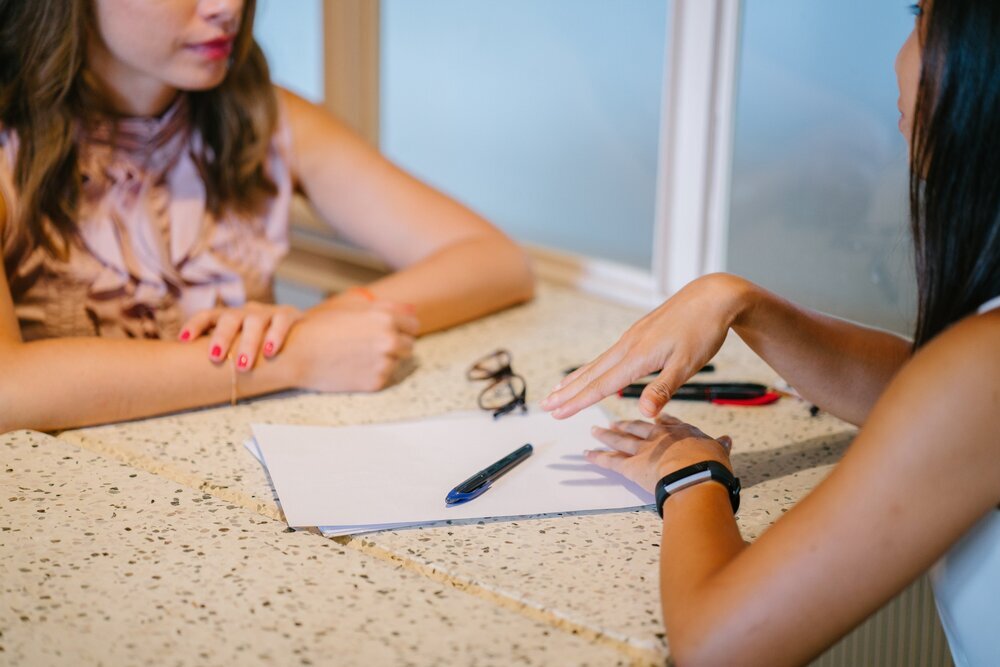5 Writing Lessons I Learned in 2020
Life is weird.
I recently sat down, as I do every December, to take stock of my year as a writer. I assumed the outcome would be bleak. After all, this has been the year of OMG EVERYTHING IS AWFUL ALL THE TIME.
This was the year of COVID-19, of a seemingly never-ending presidential election, of George Floyd and Rayshard Brooks and Breonna Taylor and far too many other Black victims, of unemployment and the closing down of everything we love and previously took for granted.
As such, I figured my writing stats—my pitches and submissions—would be low. I don’t remember working much in the early months of COVID: When my son’s school closed and he had to homeschool. When publications stopped taking pitches and editors were furloughed. When my anxiety got the better of me and I spent more time sobbing in the kitchen than sitting at my computer.
But here’s the thing: I actually did okay.
In all, I submitted 151 pitches, essays, and stories to 93 different publications.
Of those, 111 were rejected (or just flat-out ignored), 13 were withdrawn by me (because they’d been placed elsewhere), and 12 are still pending (and will probably not be accepted—if at all—until January).
Fifteen pieces were accepted.
Is that incredible? Maybe not, to some.
But am I happy with it? HELL YES.
Photo by Moose Photos from Pexels
Because here’s the thing: I managed, in a year of exhaustion and fear and anxiety and homeschooling, to send my words and ideas out to more than 90 places.
It feels SO GOOD to know that despite the insanity of everything going on in the world (and in my house, and in my head), I still pulled through and submitted significantly more than the year prior.
And in the process, I learned some important things.
Lesson #1: Never Assume You’re Not Good Enough
When I first started pitching to publications two years ago, I really wanted to write a piece about pediatric migraines. I’ve been getting migraine headaches since the age of four and I know firsthand how much the affliction is misunderstood. I also have a son who has frequent headaches and I wanted to speak to a neurologist so that I could help myself, and other parents, know when head pain is more than just a fluke and could be something worse.
But each time I thought about pitching this idea, my stomach wound in knots. Who am I to write this piece? I’d never interviewed anyone, let alone written a medical article, so how could I expect any publication to take me seriously?
Over and over I talked myself out of sending the idea into the world. I just kept it under wraps, thinking someday maybe I’d be enough of a “Real Writer” to successfully pitch it.
Then, around this time last year, I decided to just give it a shot. I assumed no one would ever accept the pitch, but hey—rejection is the name of the writing game, so NBD if it was ignored.
I sent the idea out to a parenting magazine and!
Nothing.
No response, even after a couple of follow-up emails.
In January I tried again, this time sending it to the On Parenting desk of The Washington Post. (Go big or go home, amiright?) After a follow-up email, an editor kindly replied to say she liked the idea, but perhaps it would be better suited to the Health-Science section. I immediately sent it off to the editor there, and much to my utter shock, she said yes.
I spent the next few weeks interviewing pediatric neurologists and writing up a piece that I’d longed to write for years. I submitted it in March…and then the world shut down and it was immediately pushed to the back burner. Understandably, the Health-Science desk at WaPo was just a tad busy with COVID pieces, so my evergreen article was not even remotely a priority.
But, months later, it finally ran, both in print and online.
BOOM!
The point of this little tale is that you should NEVER think you’re not smart/qualified/talented/whatever enough to write that thing or make that item or pursue that passion. The world is full of things that were created by people just like you, and you never, ever know when something you write/make/do could have an impact on someone out there.
Which leads me to…
Lesson #2: You Never Know What Kind of Impact Your Work Will Have
One of the first pieces of mine that was published this year was an essay in Greatist. I actually wrote it in December 2019, but it went live on the website on January 28, 2020. It was part of a series called “When Giving Up Isn’t Failure, It’s Growth,” and it touched upon how I had to give up tying my identity to my career (something I still struggle with).
In all honestly, it’s not my favorite piece of writing. But for whatever reason, it really resonated with a lot of people. I got some incredible feedback from others who were in the same boat, and the piece was shared more than 630 times on social media.
So, if you have a story to tell, tell it. You never know who might benefit from it.
Lesson #3: The More You Work, the More You’ll Figure Out What You Love
For the first year of my freelancing career, I flailed about, trying to figure out what the hell I wanted to do. I published a ton of blog posts on Medium, wrote a few personal essays, did a researched article—and I enjoyed it all somewhat, though none of it really excited me.
It wasn’t until I spoke with the two neurologists for The Washington Post story that I realized just how much I love conducting interviews.
Photo by mentatdgt from Pexels
I’m a pretty introverted person and I loathe small talk, but for whatever reason, I really enjoy asking people questions about themselves, their lives, and their work. And interviewing for an assignment gives me an opportunity to ask people about things I’m interested in, so not only am I gathering information for an article, but I’m learning new things in the process. It’s a win-win!
And to think: I never would have figured any of this out had I not taken a leap and pitched that pediatric migraines piece to WaPo.
Speaking of interviews…
Lesson #4: Don’t Be Afraid to Make the Ask
Once I had The Washington Post assignment under my belt—and I had a feel for just how much I loved to interview people—I decided to aim high: I reached out to a publicist and asked to interview my idol, Ani DiFranco.
I’ve written about the experience before, so I won’t rehash it all here. But let’s just say that had I not emailed Ani’s publicist and simply asked to speak with her, I never would have landed the assignment (for Shondaland) and spent 40 minutes chatting with someone who I’ve admired from afar from 25 years.
The final lesson:
Lesson #5: Keep Submitting, Even When the Rejections Pour In
Back in 2018, when I still had an office job and was just mulling over the whole “freelance writing” idea, I wrote a few short stories. I sent them out to literary magazines, naively thinking I’d get a yes almost immediately.
Instead, I got a no. Actually, I got many, many nos.
And worst yet, I spent a ton of money for those nos.
Literary journals—those that publish in print and pay their writers—have submission fees. Those fees, at $2-$4 a pop, help the usually not-for-profit or college-run journals pay for overhead expenses. But when you’re submitting multiple stories to multiple outlets, those fees add up, and I eventually spent more than $100 just to have my work read and rejected.
But I was really, really proud of my stories, especially “The Date,” which I’d formed in my head years before putting it down on paper.
In 2019 I was busy with other work, so I stopped trying to get my fiction published. But at the end of the year, I challenged myself: I was going to send my story out to as many online journals as possible. Online sites usually don’t pay, but they also don’t charge, so I could submit my work—for free—to a number of really great places.
Soon, I got a yes. Across the Margin accepted “The Date.” Not only that, the editor sent me the kindest acceptance letter I’ve ever received:
I didn’t get paid for the story. I didn’t get to see it in a published journal. But I did get to see it in print, finally, after two years of trying to share it with the world. And those incredibly kind words from the editor gave me such a boost of much-needed confidence that it really meant so much more than any paycheck would have.
So, there you have it: even in a crappy year like this one, there were some successes to be had.
I highly recommend taking a few moments every December (or anytime you need a pick-me-up) to reflect on the past year. You may be surprised by how many things went right, even when it seemed like everything in the world went wrong.
Here’s a list of all pieces I published this year, should you have any interest in checking them out:
“Review: Anti-Aveeno Itch Products” (product review, Motherfigure)
“The Date” (fiction, Across the Margin)
“How I Gave Up Tying My Identity to My Career” (essay, Greatist)
“Mommy’s Little Writing Lies” (essay, Brevity)
“Using Writer’s Block to Help Your Writing Career” (article, Submittable Blog)
“If Preschool Students Had Access to HR” (fiction, Little Old Lady Comedy)
“The Daily Habit That Brought Me Closer to My Grandmother” (essay, AARP)
“I am Overwhelmed by Pandemic Fatigue” (essay, Medium)
“Review: Motorola Wireless Baby Monitor” (product review, Motherfigure)
“An Unwanted Inheritance” (my blog)
“The Not-So-Terrible Twos” (blog post, Medium)
“The Story Behind the Story: Getting Published in The Boston Globe” (blog post, Medium)
“What the Pandemic Taught Me About Writing” (blog post, Medium)
“Jennifer Oneal is on a Mission for More Female Advancement in Video Games” (Q&A, Shondaland)
“How My Blemishes Taught Me to Love My Skin” (essay, The Girlfriend from AARP)
“Stop Complaining About Medium…on Medium” (blog post, Medium)
“When is Head Pain More Than Just a Headache in Children?” (article, The Washington Post)
“The Clown” (fiction, Drunk Monkeys)
“What Parents Should Know About Homeschooling” (article, Shondaland)
“Ani DiFranco’s ‘Long Time Gone’ is the Perfect Mix of Activism and Creativity” (Q&A, Shondaland)
“The Story Behind the Story: Interviewing My Idol for Shondaland” (blog post, Medium)
“The Best Gifts on Etsy to Remind Someone of Albany” (round-up, Times Union)
“Gifts Any Homeowner in Upstate New York Truly Could Appreciate” (round-up, Times Union)
“Becky Cooper Digs Into Harvard’s Most Infamous Unsolved Mystery” (Q&A, Shondaland)
“Holiday Gift Ideas for Writers: 2020 Edition” (round-up, Medium)
Accepted but not yet published:
“My Overscheduled Calendar Has Flown Out the Window. Now What?” (reported essay, The Boston Globe Magazine)
Interview with author Adam Hargreaves (Q&A, Writer’s Digest Magazine)





